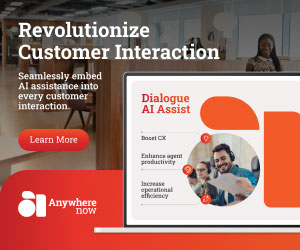Thanks to Hollywood, much of what we perceive regarding Artificial Intelligence is rooted in robots taking over the world. And because it is largely misunderstood, many people fear even considering adopting the technology. But ignoring it won’t make it go away any more than refusing to use Facebook prevented it from becoming a multi-billion-dollar industry that changed the face of business.
AI technology is improving all the time, and while it may be a while before it becomes part of mainstream customer service, it is probably going to change the way we operate. Wouldn’t it be better to be prepared and know enough to embrace the technology when it rolls out?
Why customer service?
Business reviews reflect that one of the few areas business can differentiate themselves from competitors is on customer service. As an added incentive to get it right, studies show that companies spend millions each year in trying to resolve poor customer service. There is still an overwhelming need to get it right, which is why companies are willing to invest in customer service technology and training.
Sometimes this can be a double-edged sword. As much as technology is developed to aid in customer service, sometimes in the short term it can complicate things. Take social media, for example. It’s a great way to interact with customers and be able to provide them with prompt feedback in an informal setting. But many companies have difficulty keeping on top of social media interactions. It requires manpower to monitor all the channels and respond to customers within a given time frame. Sadly, for many companies the delay in responding sometimes serves to infuriate unhappy customers even more and can become a PR nightmare.
Can AI provide the support customer service agents need?
Developers of AI customer service technology are adamant that its purpose is not to replace humans but to make it easier for them to serve customers.
Digital Genius, an AI start-up, uses information from historical customer service chats as well as fact data from frequently asked questions to populate a database that suggests solutions. The idea is that AI can research the database of information more efficiently and provide prompts to agents to help them resolve queries more efficiently.
IPSoft has focused on the human element of AI, creating technology that has a level of emotional intelligence able to adapt according to how the customer interacts. The response is linked to whether the customer is angry or frustrated, with the objective of being able to show empathy. Another element IPSoft is developing is the ability to adapt to different tones or languages. This would make this AI most human in terms of customer service.
Inbenta’s AI offering for customer service is focused on developing natural language. In other words, on understanding the meaning behind what someone is asking and not just looking at the words used, using context and natural language processing. One customer service element Ibenta has already achieved is its ability to respond in bulk to email queries. By searching archives of FAQs, it is able to provide answers to many standard questions more efficiently than customers searching for the information themselves.
But perhaps one of the most impressive applications of AI has been by BT, which uses it to respond to customer complaints on social media. The program, Debatescape, uses AI to seek out customers on social media platforms that appear to be having difficulty getting their queries resolved. Being able to find these customers and accurately respond to their queries has been a major boost for customer service. The program is able to do this far more efficiently than agents manually managing social media queries.
Trading humans for technology?
I’m so passionate about maintaining the human touch in customer service, but I have to admit there are ways in which technology can help us serve customers better. Currently, many customer service glitches occur where information isn’t easily accessible in databases. If AI can help agents search for information and prompt responses based on customer requests, it can certainly help contact centres become more efficient.
The ability to trawl social media sites to assist in customer service is also very appealing, as this is an aspect that many businesses struggle to keep on top of.
When looking at AI technology, business leaders will need to carefully consider the impact for both contact centre agents and customers. While AI promises streamlined solutions, we all know that implementation can often be much more complex.

Carolyn Blunt
As much as we try to define consumer characteristics and map their buying habits and responses, there will always be exceptions to the rules. And AI can only really respond to rules – meaning there is still value in staffing contact centres with agents. AI may indeed provide many benefits to the customer service industry in the future. It could be very exciting to see how it develops.
With thanks to Carolyn Blunt, Managing Director of Real Results Training
Author: Jo Robinson
Published On: 9th Aug 2016 - Last modified: 13th Jan 2025
Read more about - Archived Content, Artificial Intelligence (AI), Carolyn Blunt, Predictions
































